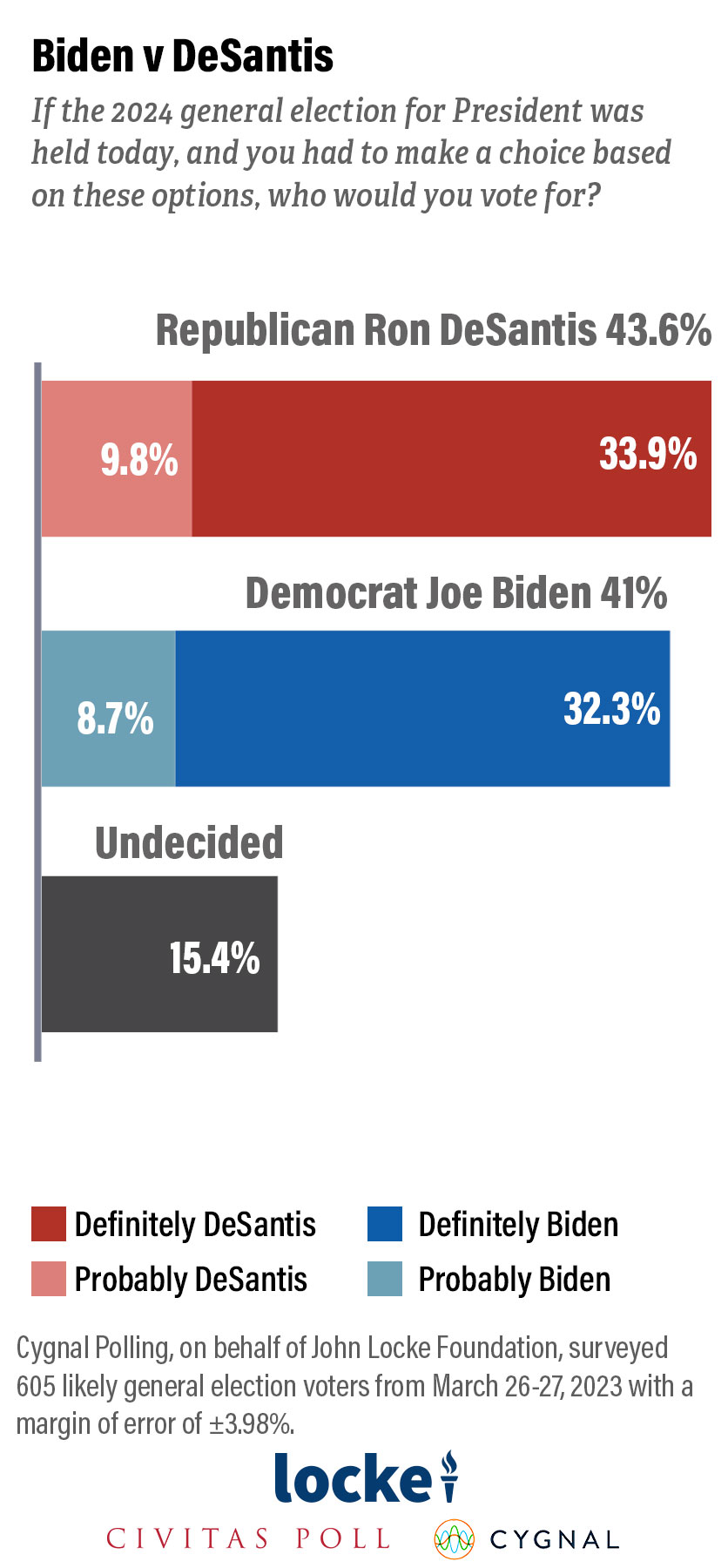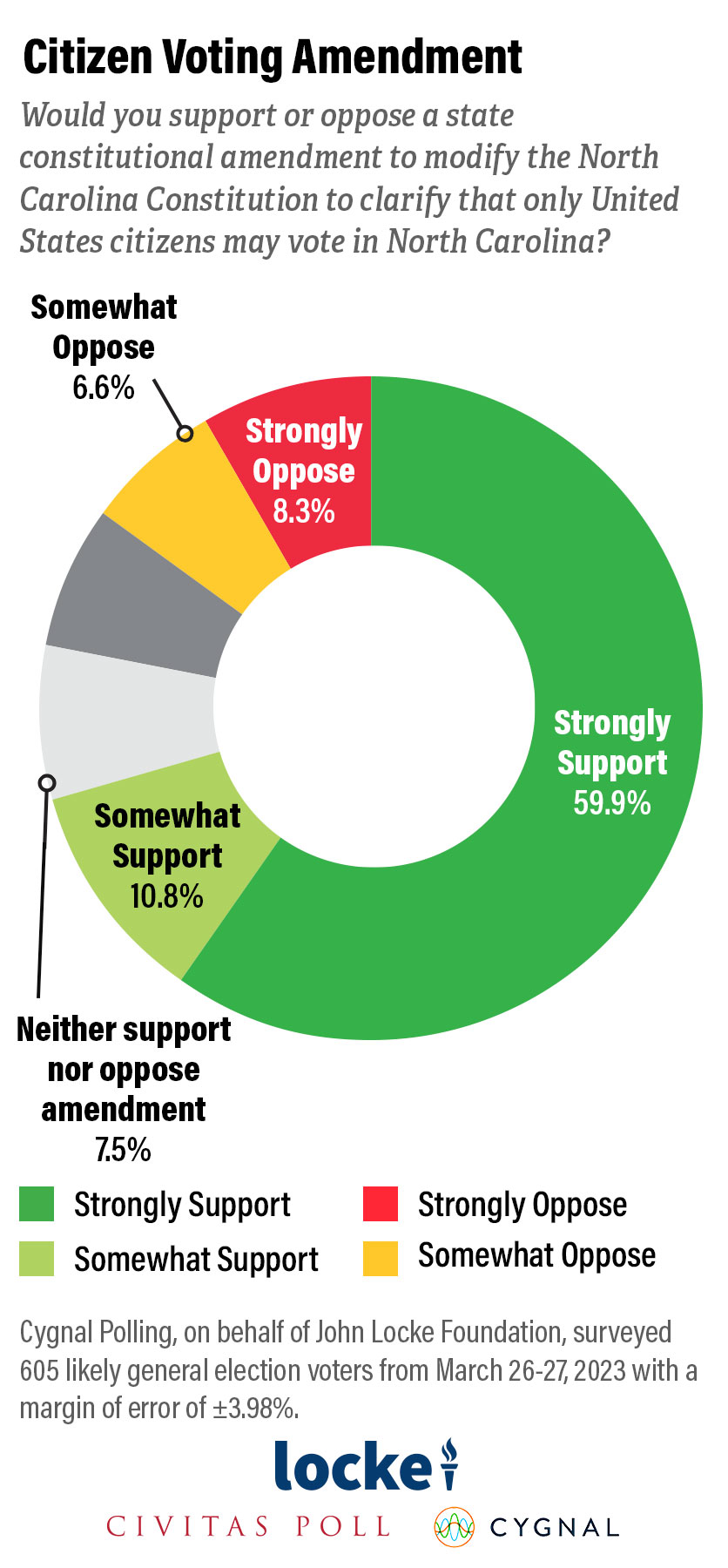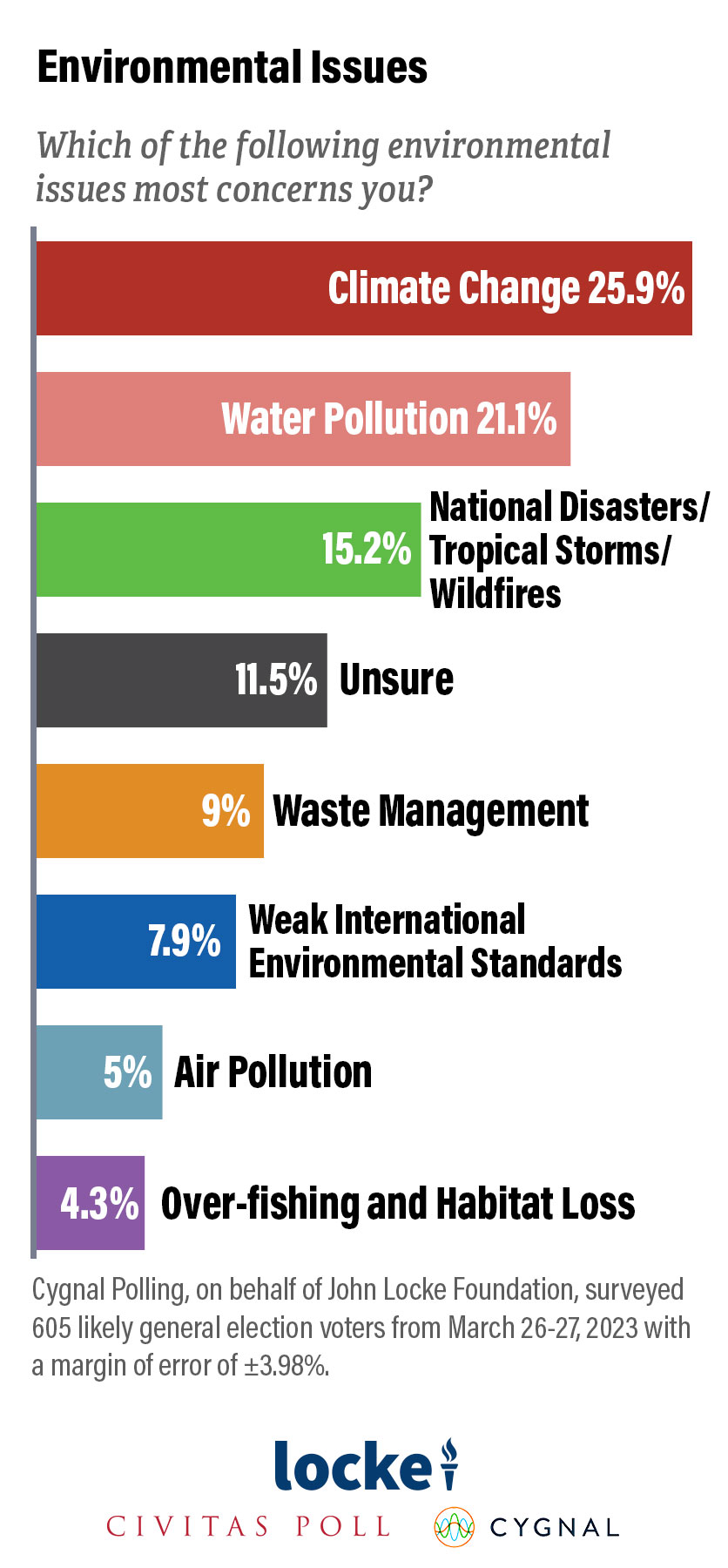March 30, 2023
RALEIGH – With the 2024 presidential race on the horizon, rumors of potential candidates are swirling. Of the front-runners, the favorite in North Carolina is Florida governor Ron DeSantis, according to the latest Civitas Poll. When polled against President Biden, DeSantis won a plurality of the support (43.6%), leading Biden closely by 2.6 points. A hypothetical race against Biden and Trump came in even tighter, with Biden pulling in 45.4% of the support, and Trump behind by two points (43.45). However, both hypothetical races are close, within the 3.98% margin of error for the poll.
Interestingly, DeSantis and Trump both pulled in a similar number of votes, but in the race against DeSantis, fewer people said they would vote for Biden, while more said they were unsure. Biden received a five percent bump among women when matched against Trump (50% to 37%) compared to DeSantis (45% to 38%)
“Yet again, the race to the White House will flow through North Carolina,” said John Locke Foundation President Donald Bryson. “These results indicate that the presidential race in North Carolina could be close. While Ron DeSantis was the only Republican candidate, in this poll, to come out over President Biden, all three results were within the margin of error.”
The Civitas Poll included a matchup against Biden and former Vice President Mike Pence. This race had the highest percentage of ‘unsure’ voters, at 19.3%, with Biden leading Pence by two points at a plurality of 41.4% support. While Nikki Haley has declared her candidacy, it was not polled in this month’s survey.
The GOP was the leader in all other statewide races polled. Republicans’ strongest lead is in the ballot for the state General Assembly, with 46% of voters showing support for the generic Republican candidate, as opposed to 42.1% support for the generic Democrat. The race for Governor and Congress both had the generic Republican up by 2.3% over the generic Democrat, with 45.3% of respondents support for the gubernatorial candidate, and 44.7% for the congressional candidate.
Voter confidence in North Carolina’s elections is up. Nearly 60% of respondents said they believe North Carolina’s next election will be “free and fair,” compared to only 49% in March 2021, the last time this question appeared on the Civitas Poll. Still, the vast majority of voters (70.8%) would like to see North Carolina secure elections further by adding a citizens-only voting amendment to the state constitution. Support for this amendment is greatest among registered Republicans (90%) and Independents (71%), but even a majority of Democrats are in favor of citizens-only voting (56%). More than twice as many Democratic respondents were in favor of the amendment than opposed.
Likewise, support for voter I.D. remains strong amongst North Carolinians, with nearly seven out of ten voters in favor. Support is greater among males than females (77% vs. 61%), and is almost ubiquitous with registered Republicans, at 96% support. Registered Democrats, on the other hand, are split down the middle with 45% supporting voter I.D., and 44% opposing it.
“North Carolinians have spoken, and they want secure elections,” said Bryson. “While voter confidence is improving, more than a quarter of North Carolinians still doubt the integrity of our elections. We must do more to ensure public trust in the ballot box.”
Support for a Taxpayer Bill of Rights enjoys the support of a lesser majority (56.7%), with low opposition (11.2%). This proposed constitutional amendment would limit the growth of government spending to inflation plus population growth and include returning excess revenues to taxpayers. Adding right-to-work to the state constitution shows similar levels of support, with 54.4% of North Carolinians in favor, and 14.3% opposed. Adding right-to-work as an amendment to the constitution would further codify N.C. workers’ right to abstain from joining (or paying) a labor union.
One constitutional change that a majority of voters have yet to support, however, is the repeal of the literacy test from Article VI of the N.C. Constitution. While the repeal has the support of a plurality of respondents (41.8%), many North Carolinians are neutral or unsure (30.2%), and a minority (28%) remain opposed to removing this unenforceable policy. These results indicate that there is still a potential for sway on both sides of the issue to either adopt or reject the repeal, which has stalled in the state House.
On the environment, North Carolinians appear pessimistic. Despite steep declines in greenhouse gas emissions over the past two decades, a plurality (46.2%) of North Carolinians believe the state’s environment is worse now than it was in 2005, and the number one environmental concern cited was climate change. This gloomy perception goes hand-in-hand with the finding that a majority of North Carolinians believe the media’s portrayal of the environment is mostly or completely negative (56.5%). Outside of climate change, voters’ top environmental concerns were water pollution followed by natural disasters. At the bottom of the list was over-fishing and habitat loss.


